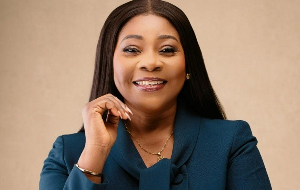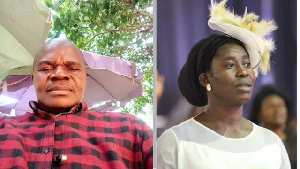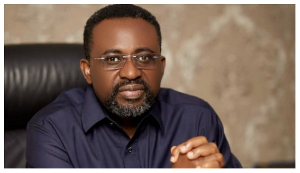There is every indication that Ghana's leading opposition party will select its next flagbearer in eleven months time, giving the candidate and the party leadership a clear 30-month period of a focused and disciplined campaign before the December 2012 general elections, senior sources at Asylum Down told The Statesman.
The New Patriotic Party wants to get the leadership contest out of the way to quickly get its rank and file together to focus, without internal distraction, on its engagement with the general populace and against the incumbent National Democratic Congress. So far only two names are being seriously spoken of as likely to contest: the big favourite, Nana Addo Dankwa Akufo-Addo and Alan John Kwadwo Kyerematen, who came second to Nana in the race for the 2008 Presidential Candidate.
The party's annual conference next month will consider a related number of constitutional reforms, including the popular proposal to widen the selectorate to about 330,000 party members from the situation where only about 2,340 members of the party leadership nationally had the exclusive right to choose who leads the NPP in general elections. April 2010 is being considered for the presidential primary for various reasons. Party members feel there is currently a critical leadership vacuum that needs to be filled in the shortest practicable time.
The party is due to hold national, regional and constituency elections of its officers by December 2009. The NPP constitution calls for the opening up of nominations for 3 months before the National Congress to choose a flagbearer. The decision to fix the April date for the next flagbearership contest is most likely to be left to the next set of national leaders to take in January 2010.
With a total of 330,000-odd proposed selectorate expected to vote at one central point in their various constituencies, a national congress, in a form of rally, may be held afterwards to outdoor the party's 2012 Presidential Candidate and effectively launch the party's platform for the next general elections.
It is feared to delay the presidential nomination would only frustrate the party's urgent quest to raise funds, mobilise its grassroots and present a focal rallying point and offensive front against the government.
"We need to get our act together before the NDC begins showing signs of finding their feet,†says Arthur Kennedy, the Chairman of the 2008 NPP Communications Committee. "At the moment we come across as too busy defending ourselves rather than associating our messages with the concerns of the people. The sooner we sort out this seeming strategy and leadership vacuum the better,†he adds.
Also, earlier presidential primaries, it is argued, will give the party the strategic space and comfort to put together teams and think through policy alternatives and options. This should sharpen the message from the opposition party and make its role more constructive and focused.
The NPP constitution currently stipulates that in time of opposition the flagbearer must be elected two years before the next general elections.
But, there are more pressing issues for the party before the flagbearership contest.
The proposed expanded electoral college, among other things, is to be put before the highest decision-making body of the party at the Trade Fair Centre, Accra next month.
The suggestion to expand the selectorate by 14,000% is very popular with the rank and file of the party, checks made by The Statesman reveal.
“It will effectively transfer ownership of the process from the party leadership to the grassroots of the party,†explains Dr Kennedy, a former presidential aspirant, who is a big proponent for the more radical one-member-one-vote option.
The expanded selectorate will include 2 Tescon executives from every recognised tertiary institution in Ghana, 50 delegates from the party's international branches and 15 delegates from each of the nearly 22,000 polling stations across the country.
The 15 delegates, who will join MPs and party officers from the various levels, will consist of the 5 polling station executives, plus 10 'ordinary' members of the NPP, who are registered in the polling area.
The same system is to be applied in the nomination of party officers and parliamentary candidates.
But, the proposal, although extremely popular with the party, has a few but powerful critics. They argue about the cost involved. But, proponents of the expanded selectorate say the grassroots mobilisation profit will be far greater and, eventually, less costly than the relatively elitist status quo, with its concomitant problems of grassroots dissatisfaction.
A practical option is for delegates to travel to a common polling centre in every constituency, at their own expense, and cast their votes there. The voters may average 1,400 per constituency. Polling, which will be supervised by the Electoral Commission and agents of candidates, is expected to last about six hours. This should give enough time for the results to be collated and, for the presidential primaries, the national tally announced by the EC in Accra. This means that for the flagbearership, voting will take place simultaneously in all constituencies across the country.
The party leadership is meeting in Accra this week to agree on the communiqué before putting it before the annual conference next month.
General News of Friday, 15 May 2009
Source: Yaw Asare












